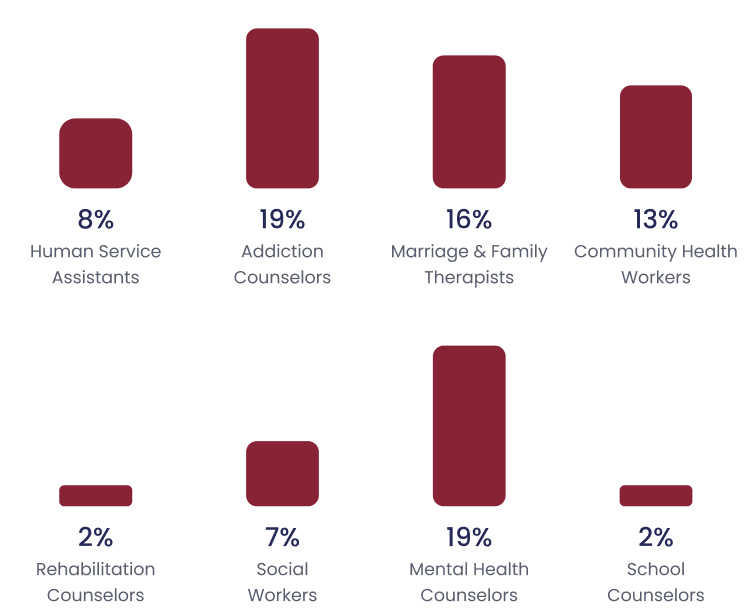Understanding Counseling Careers
Types of Counselors
Roles and Responsibilities
As a counselor, you’ll have various responsibilities depending on your specialization. You’ll conduct assessments, develop treatment plans, and provide individual or group therapy sessions. Professional counselors work to build trusting relationships with clients while maintaining confidentiality.
Find Online Counseling Schools
Educational Pathways for Counseling
Undergraduate Studies
Your counseling career typically begins with a bachelor’s degree. While a specific major isn’t always mandatory, degrees in psychology, sociology, or social work provide a solid foundation. These programs offer courses in human behavior, psychology, and research methods.
Graduate Programs
A master’s degree in counseling is essential for most counseling careers. These programs typically take 2-3 years to complete and offer specialized tracks such as:
- School Counseling
- Mental Health Counseling
- Marriage and Family Therapy
- Substance Abuse Counseling
Licensure and Certification
- Passing the National Counselor Examination (NCE)
- Completing 2,000-4,000 supervised clinical hours
- Applying to your state’s licensing board
Specializations within Counseling
Clinical Mental Health
- Conducting assessments to diagnose mental health disorders
- Developing treatment plans tailored to each client’s needs
- Providing individual and group therapy sessions
- Collaborating with psychiatrists and other healthcare professionals
Substance Abuse and Addiction
- Assessing the severity of addiction and developing treatment plans
- Conducting individual and group therapy sessions
- Teaching coping strategies to manage cravings and prevent relapses
- Providing support to families affected by addiction
Family and Marriage Therapy
- Assessing family dynamics and identifying areas of conflict
- Facilitating discussions to improve communication between family members
- Teaching conflict resolution skills and healthy coping mechanisms
- Addressing issues such as infidelity, divorce, or blended family challenges
Did You Know?
The Bureau of Labor Statistics estimates higher growth rates than average in these counseling fields by the year 2033 and the median annual wage for these occupations was $52,000 for 2023.

High school graduates earn on average
$899 per week

Bachlelor’s graduates earn on average
$1,493 per week

Career Considerations
Work Environments
Counselors work in a variety of settings. Private practices allow you to set your own schedule and specialize in specific areas. Here, you’ll have more control over your caseload and client types.
Counselor Salaries
- Mental Health Counselors: $48,520
- School Counselors: $58,120
- Marriage and Family Therapists: $51,340
- Substance Abuse Counselors: $47,660
Job Outlook
Impact of Counseling
Supporting Mental Health
Counseling has a profound impact on mental health and emotional well-being. You can expect significant improvements in managing stress, anxiety, and depression through therapy sessions. Counselors equip you with coping strategies and self-awareness techniques to handle life’s challenges.
- Reduced symptoms of mental health disorders
- Improved relationships and communication skills
- Enhanced self-esteem and confidence
- Better stress management
Career Development and Academic Success
- Clarified career goals and objectives
- Improved decision-making skills
- Enhanced job satisfaction and work-life balance
